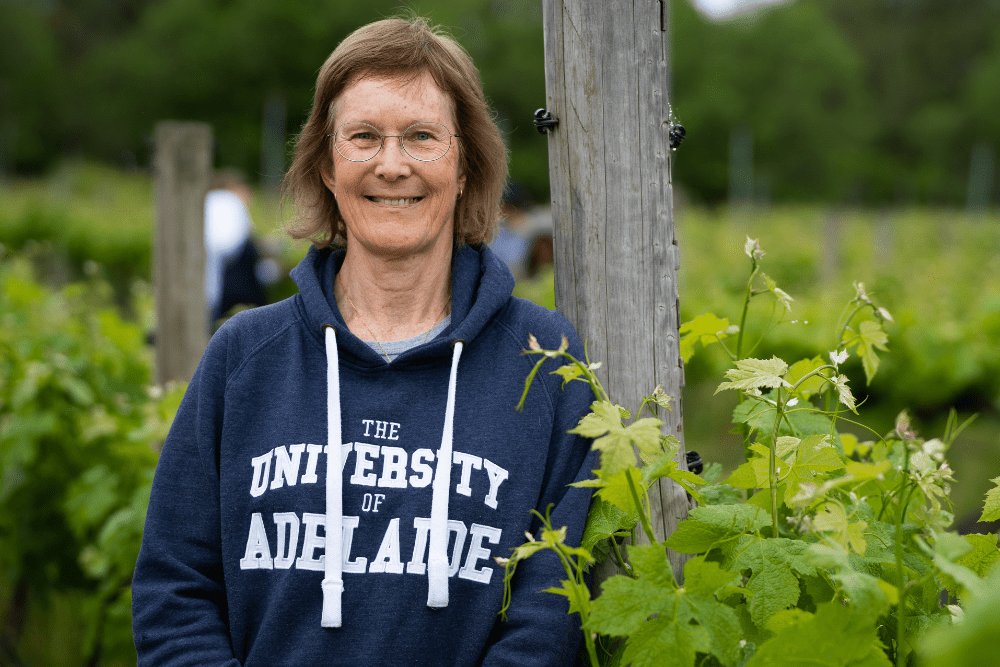Australian Biosecurity Awards - Education
Emerita Professor Eileen Scott
The University of Adelaide’s Emerita Professor Eileen Scott has received a 2022 Australian Biosecurity Award in the Education category.
With over 30 years of research and teaching experience, Dr Scott is a scholar and researcher with real-world impact.
Her contribution to Australian biosecurity includes industry-facing research, senior leadership roles, teaching and service to professional societies, including the Australasian Plant Pathology Society, Australasian Mycological Society, Australian Society of Viticulture and Oenology, and the former Cooperative Research Centres for National Plant Biosecurity and Viticulture.
A passionate advocate for plant biosecurity, Dr Scott has played a critical role in fostering a new generation of professionals through supervision, mentorship and training of higher-degree research (HDR) students, many of whom have followed a career in the field.
Dr Scott joined the University of Adelaide as a lecturer in 1987 and has taught undergraduate courses in microbiology, plant pathology and viticultural production. Between 2008 and 2012 she coordinated and taught the master’s course in classical diagnostic methods in plant health and biosecurity. Dr Scott became Professor in 2011 and served as both Deputy and Interim Head with the University of Adelaide’s School of Agriculture, Food and Wine.
She has provided tireless and influential service and leadership as an ambassador and champion of gender equity and diversity in STEM. She was officially recognised in this capacity by the Australian Women in Wine 2017 Awards, receiving the Workplace Champion of Change Award. She was awarded Fellow of the Australasian Plant Pathology Society in 2011 and has garnered accolades for her HDR supervision.
Her substantial knowledge and expertise in disciplines such as plant science, crop protection and plant pathology have provided research outputs with direct agricultural impact. Her research activity on grapevine diseases focused on botrytis bunch rot, powdery mildew and eutypa dieback. Dr Scott also helped develop techniques to understand how fungi infect plants and interact with other environmental factors. Examples include the diagnosis of eutypa dieback based on molecular and biochemical techniques, diagnostics for soil-borne diseases in pulses and DNA-based testing for pistachio bacterial dieback. Other research areas of interest include:
- interactions between plant pathogenic fungi and honeybees
- sustainable viticultural management techniques, crop research (on faba bean, almond, pistachio, canola and barley), diagnostics, surveillance monitoring and biological control.
Dr Scott’s collegiate and collaborative approach to research is illustrated by the breadth of her work with colleagues from many disciplines and organisations across the sector, and by how universally well-liked and respected she is.
Dr Scott was nominated by Jason Able, a colleague from The University of Adelaide.
Watch a video about Dr Scott’s work
Photos
View Original | AusPol.co Disclaimer
